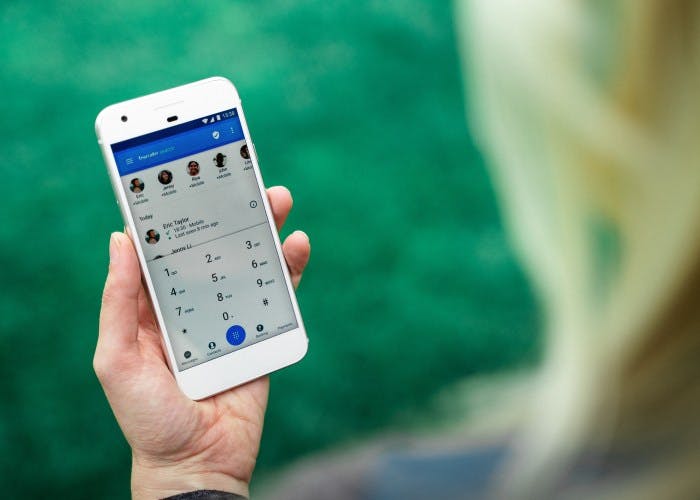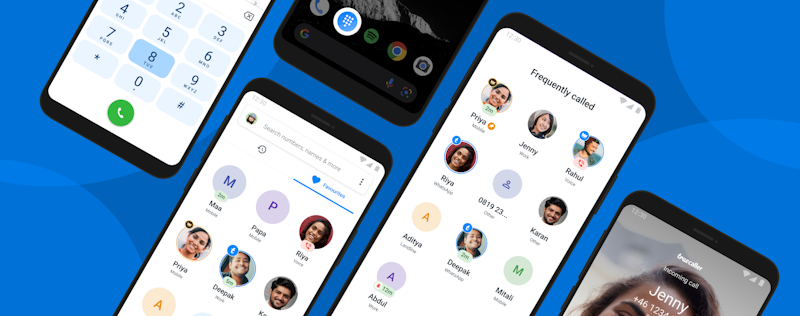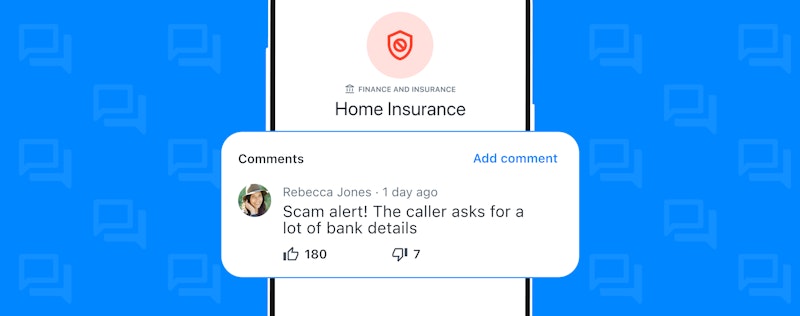
5 Reasons To Use an Anti-Scam Dialer App
Money Crashers
Sep 7, 20205 min read
The arms race between consumers minding their own business and people trying to scam them has been going on a long time. Traveling medicine salesmen gave way to door-to-door insurance scams, who ceded their place to phone scammers, spam and phishing emails, and whatever will happen next.
You’ve undoubtedly noticed the increase in robo-dialed phone scams in the past few years. One of the reasons why this is happening is because Voice over IP (VoIP) calls have become easy and cheap to use overseas. VoIP lets callers use the web to make scam calls, which anonymizes them and allows apps to maximize how many calls they place per minute.
These calls are more than just a nuisance. Without defenses in place, they can cause harm to businesses and individuals. Here’s how.
5 Ways Scam Calls Can Hurt You
1. Tying Up the Lines
As a private citizen, you can ignore any calls that come through from a number you don’t recognize. If it’s important, they’ll leave a voicemail, and you can get back to them. Businesses don’t have that luxury. Getting a call from an unknown number might be a scam, or it could be from your next customer.
This is problematic because you’re paying for the time your employees spend on the phone handling scam calls and for the extra staff needed when the total call volume (legitimate and otherwise) is high. Also, you’re paying in opportunity costs. Every line taken up by a scam call is a line your real customers can’t use to talk with you.
An anti-spam dialer app identifies calls coming over a VoIP dialer and other telltale signs common to scam calls. It blocks those, leaving your lines and your representatives free to give their attention to legitimate leads and clients.
2. Angry Callbacks
Neighborhood spoofing happens when a VoIP scammer displays a phone number from someplace near you. This makes you less likely to ignore the call since you suspect it could be a neighbor or a friend who’s not on your contact list.
VoIP number spoofing doesn’t identify itself as an unassigned number. It merely displays a random set of digits that conforms to a particular city or neighborhood. If that number matches your business number, people will start calling you to complain about it. At best, this carries all the same problems as scam calls directly to your business. At worst, it can give your company a bad reputation and lead to angry online reviews.
Installing anti-spam dialer apps for your company doesn’t do anything directly to alleviate this, but it can help in two ways. First, the more people and companies who use these apps, the less neighborhood spoofing and other techniques will work. Second, mentioning it in a blog, privacy statement, or similar public-facing communication can defray some of the impacts if your number does get spoofed.
Get Truecaller for free today
3. Monetary Costs
Earlier this year, Truecaller released a on the monetary impact of scam calls in the U.S. The report alarmingly shows that as many as 56 million Americans have lost an estimated 9.7 billion to phone scams in the past 12 months, which is an 88% increase compared to last year’s 0.5 billion.
The data highlights that in the past six years, the average growth rate of Americans falling prey to scam calls in the US has increased as much as 30% year over year. Among those affected by scam calls, the average money lost was 51 USD, which is a 44% increase compared to last year (44 USD).
4. Missed Opportunities
If you don’t ignore robo-dialed scam calls, it takes up resources and increases your costs. On the flip side, if you start ignoring calls from unidentified numbers, you miss the chance to bring in new customers and serve existing clients.
This can be especially bad if an angry customer is trying to contact you using a number similar to the one you’ve gotten scam calls from recently. Although you want to solve their problem, you ignore their calls and end up losing that client forever.
This issue is one of the easiest to fix. Anti-scam dialer apps help you separate the legitimate calls from the scams, so you never miss a hot new lead or an existing client who needs help.
5. Disgruntled (or Honestly Mistaken) Employees
Imagine a scam call comes in, and instead of you or a trustworthy employee answering it, a disgruntled staff member picks up. The person might pretend to fall for the scam, exposing your company to severe losses before you get things squared away.
Or, a trustworthy team member might fall for the scam, giving away information or funds in an honest attempt to save the day. Either way, your company is exposed, and it can be difficult to recoup those losses.
With an anti-scam dialer in place, the scam calls never reach your business. There’s no temptation for a disgruntled worker and no chance of a staffer’s honest mistakes.

Final Thought
Although it’s easy enough to spot certain calls as scams, others are more sophisticated. During any call with a stranger, keep an eye out for a few telltale signs you’re being targeted:
They provide only general information (e.g., “I am calling from your credit card company” instead of “I’m calling from U.S. Bank about your Visa card”).
– They threaten to contact local police (state or federal agencies handle financial issues).
– They directly threaten a lawsuit (legitimate suits come in the mail from a lawyer).
– They ask for your credit card or bank account numbers (most legitimate businesses only ask for those when you call them).
– They refuse to let you call them back (an easy way to verify a caller’s legitimacy).
– They apply time pressure (financial matters move slowly, so aggressive action in minutes, or even two or three phone calls, is a particular red flag).
As with in-person security, if you have a gut feeling the call isn’t real, ask to call them back through their switchboard. Search on Truecaller for the number you’re given, or search the company name on Google. Do your research before moving forward. Most scams will not stand up to cursory examination.
This article was contributed by Money Crashers

Money Crashers
Sep 7, 20205 min read


